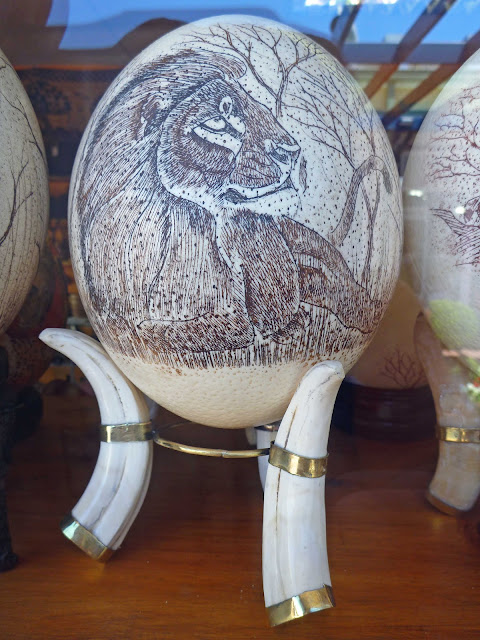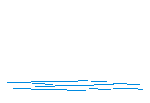East London had a little yacht club but was not very welcoming when we strolled into the club. They had a braii going and several folks were at the bar drinking but no hellos were forthcoming. We stayed just long enough to read several postings on their bulletin board that were warning about bad crime areas to avoid and shopping areas that were not safe. We decided to honor the bad vibes and stayed aboard for the next 2 days until the winds calmed for our next leg. The river was quite calm though and we were anchored near the moorings but away from the large shipping docks.
We
amused ourselves by watching several capybara scurrying among the rocks on shore.
The capybara is the largest extant
rodent in the world. It’s related to chinchillas and guinea pigs. They are native to South America and live near
bodies of water so I suppose we will see more of them in Brazil.
Mercedes-Benz also
has a manufacturing plant in East London and we watched 1000 brand new C-Class
vehicles loaded on a ship bound for the USA (we were told).
It was a calm 1 ½ day passage to Knysna (pronounced Nizna) and we entered
this protected bay through a narrow set of rocks and passed over a couple of
shallow bars. Most of the cruising books say it is a dangerous entry in strong
winds, but we had calm seas for our entry and the charts were accurate.
Gerald and Di had told us this was a nice
town and we found it so. We cautiously
were guided into the yacht club dock (meant for smaller boats) and received a
warm welcome. We had a nice lunch at the
yacht club and they found us room at another dock for our stay. We had power and water and several grocery
stores and nice boutique shops were just a short stroll away. We saw many shops with carved and decorated
ostrich eggs and just had to buy one.
One
of the yacht club members made me a small wooden piece to fix one of the
pilothouse drawers and would not take any money for his work. Our only disappointment was that we were
unable to find a rental car since this is the big South African holiday/vacation
season and all cars were booked until mid-January.
We enjoyed our 5 days in Knysna waiting for a calm period to go around Cape Agulhas on our next 1 ½ day passage to
Simonstown. We left early in the morning
in order to reach the Cape at the time of lowest wind and seas and had some fog
on our way past the entrance. We
followed our electronic breadcrumb trail on the chartplotter and were thankful
for our radar.
Cape Agulhas is
one of the world's Great Capes and the dividing line between the Indian and
Atlantic Oceans. It was named Cabo das
Agulhas (Cape of Needles) by 16th Century Portuguese explorers due to the
dangerous rocks that line the coast. When the surging Agulhas Current, bringing
warm waters from the Indian Ocean, collides with the cold Atlantic waters of
the Benguela Current and a strong breeze, the sea here can be tempestuous. The
currents, combined with the shallows and reefs of the Agulhas Bank, make this a
dangerous stretch of water that has claimed many ships. Within the seas around Cape Agulhas are the
remains of some 124 ship wrecks that occurred between 1673 and 1990. Cape Agulhas is Africa's southernmost point.
With our
modern-day advantage of weather forecasting and internet on the boat, we
enjoyed the predicted calm conditions and had less than 10 knots of wind as we
rounded the Cape. Four years after
leaving Connecticut, sailing south to the Caribbean and west through the Panama
Canal, crossing the Pacific and Indian Oceans and Java Sea, it feels wonderful,
like coming home, to be back in the Atlantic Ocean. We still have a lot of
miles between here and home, but after rounding the Cape, everything else looks
very doable.
We spent the rest
of the day passing around Danger Point and Cape Hangklip in light, following
winds as cape fur seals, African (Jackass) penguins and huge schools of
dolphins swam around the boat. We had
little or no current for most of this trip and arrived around 9:30 pm, and put
the anchor down in False Bay. We were
surprised that the wind increased dramatically in the last 10 miles near Simonstown
(land effect) and we decided that trying to dock in pitch blackness and 35 knot
winds would not have been our best decision.
The anchor held through a rolly night and the winds dropped to 20 knots by
morning and we had no trouble backing into our waiting slip at the False Bay
Yacht Club.
Here we will spend
Christmas with the Mojumbo and Cat Mousses kid boats and more than 10 other
international boats that we have met along our way. The town seems lovely. There are occasional seals lying on the dock
and a group of nesting penguins just up the road from the yacht club and the
water is surprisingly clear here. We can
take a train ($2.50 for all three of us) to Fish Hoek for groceries in about 20
minutes or to Capetown in about an hour and a half.
We wish all our
readers and our families a Christmas full of wonder and blessings for the
coming year. We are looking forward to
crossing our last ocean and completing our circumnavigation when we arrive in
Trinidad in the coming year.
Tom




































